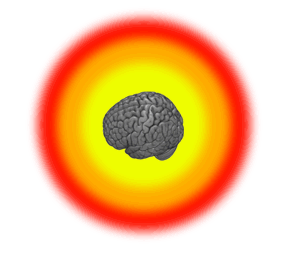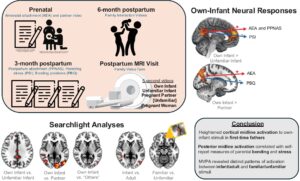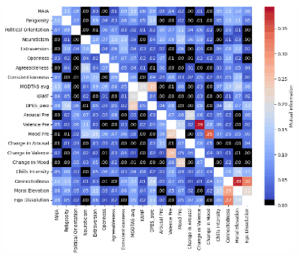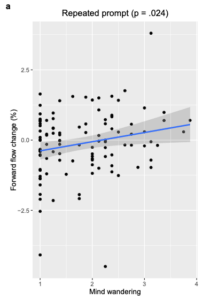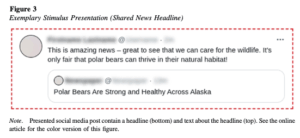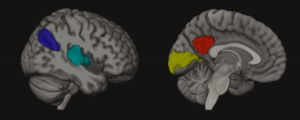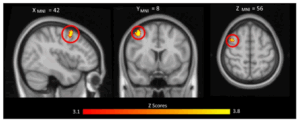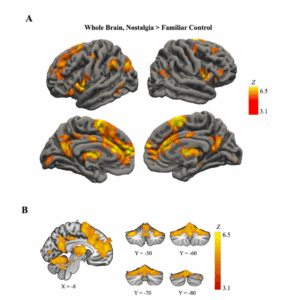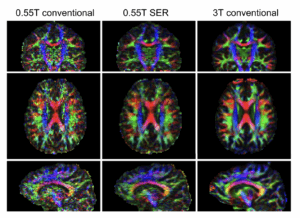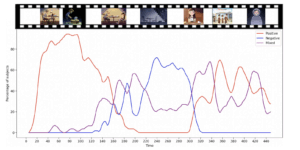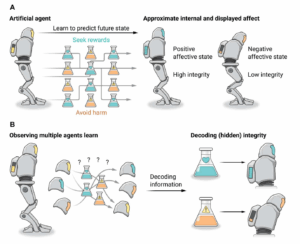My Baby Versus the World: Fathers’ Neural Processing of Own-Infant, Unfamiliar-Infant, and Romantic Partner Stimuli.
Newsome, P., Vaccaro, A., Cardenas, S., Valen, N., Waizman, Y., Aviv, E., Leon, G., Kaplan, J.T., & Saxbe, D. (2025). My Baby Versus the World: Fathers’ Neural Processing of Own-Infant, Unfamiliar-Infant, and Romantic Partner Stimuli. Human Brain Mapping.
Parents activate brain regions linked with social cognition, reward processing, and emotion when viewing their own infant. Neural responses to own-infant stimuli may be driven by familiarity, self-relevance, or by the unique features of infant faces. The current study sought to clarify these distinctions in first-time fathers by contrasting video stimuli of their infant, an unfamiliar infant, and their pregnant partner.
